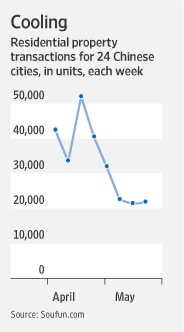amoy
Senior Member
- Joined
- Jan 17, 2010
- Messages
- 5,982
- Likes
- 1,849
African Riot in Guangzhou
http://www.youtube.com/watch?v=t39bwYkCW2M
http://www.youtube.com/watch?v=t39bwYkCW2M
never had idea about any such town in chinaAfrican Riot in Guangzhou
http://www.youtube.com/watch?v=t39bwYkCW2M
all black unkils should be dumped back to Africa.African Riot in Guangzhou
http://www.youtube.com/watch?v=t39bwYkCW2M
guy, at least 20K african blacks now live in Guangzhou...many of them are illegal immiggrant wokers purely for higher income there....IF China wishes to become a world power, China/Chinese has to open its mind to accomodate black or white (they're colorless in some sense).
Besides Africans in China do bridge China and Africa in trading and cultural ties. In Guangzhou African community also brings opportunities to native Chinese (even lodging...) and makes Guangzhou a hub for export to Africa. Africans there (probably 0.1m) have their own organizations/chambers by country for 'autonomy'.
never be too serious to what yankees say.China will become global leader in innovations: Premji
IT czar Azim Premji on Friday praised the way China is being administered, and predicted that the future would witness low-cost innovations from the Communist country flowing into the global market in a big way.
"Don't underestimate China in terms of any opportunity that is coming up in the world," the chairman of the New York Stock Exchange-listed Wipro said while answering questions at an executive committee meeting of Ficci.
"And China is probably the best administered country in the world today," added Premji, who earlier delivered an address on 'Sustainability and Innovation'.
Stating that China is doing some "incredible work" in the field of electric cars, Premji said that the country was "very innovative" with "fundamental R&D" in the solar energy space, and not just a "copycat".
He said that while China does have the world's largest copycat industry worth almost $1 trillion, it has taken up work in areas such as software, automobile engineering and renewable energy as a national programme.
The world can expect China to increasingly cater to countries like India, Africa and even the United States, where customers are looking for high-value products with cheap price tags, Premji said.
India to see renewable energy revolution
India, he said, is heading towards a "renewable energy revolution" of the kind witnessed in the mobile phone space.
Premji argued that India today has a "very low, inadequate, semi-inefficient" installed base on the power generation front, similar to the landline telecom scenario prior to the cellphone revolution.
He said the power capacity requirement in India is so huge that it would kick-start the renewable energy industry, which is enjoying "generous" government incentives.
Drawing a parallel, Premji said the mobile phone revolution in India was triggered by the lack of a landline telecom base and the waiting period of two years to get a connection.
Delivering an address on "Sustainability and Innovation", Premji expressed dismay over climate change and strongly advocated checking "abuse of ecological balance".
"The most frightening thing is water management is not high on the priority of the government," he said and lamented the lack of recycling of water.
Premji expressed anguish over the degradation of water and said tap water is not potable. Wells in villages are polluted, with people falling sick. He said it is going to be a "national crisis" if the government does not take systematic measures on a war-footing to address the issue of water management.
http://business.rediff.com/report/2...ecome-global-leader-in-innovations-premji.htm
never be too serious to what yankees say.
CHina's R&D capacity is there .It never becomes more just because some Yankees praise China. China's R&D capacity never becomes less either,because yankees belittle Chinese R&D capacity.
http://gb.chinareviewnews.com/doc/1...=45&kindid=0&docid=101340581&mdate=0601141500
ä¸è¯„社香港6月1日电ï¼æ·±åœ³5届人大1次会议开幕,代市长王è£åœ¨å·¥ä½œæŠ¥å‘Šä¸è¯´ï¼Œè¿‡åŽ»5年,深圳生产总值年æˆé•¿13.8%,2009年达到8201亿元(人民å¸ï¼Œä¸‹åŒï¼‰ï¼Œå±…内地大ä¸åŸŽå¸‚第4ä½ã€‚
  旺报报é“,王è£è¯´ï¼ŒåŒæœŸæ·±åœ³çš„人å‡ç”Ÿäº§æ€»å€¼è¾¾åˆ°13581美元,æå‰ä¸¤å¹´å®žçŽ°"å一五"è§„ç”»ç›®æ ‡ã€‚åœ¨ä¸å›½ç¤¾ç§‘院å‘布的城市竞争力评估报告ä¸ï¼Œæ·±åœ³ç»¼åˆç«žäº‰åŠ›è¿žç»4年列内地城市榜首。
  王è£è¯´ï¼Œæœªæ¥5年深圳市政府的主è¦å·¥ä½œä¹‹ä¸€æ˜¯åŠ 快特区内外一体化建设,按照国际一æµæ°´å‡†ï¼Œæ‰“é€ åŒºåŸŸå‘展ä¸å¿ƒã€‚
  到2015年,深圳生产总值将高过1.5å…†å…ƒï¼ŒæŽ¥è¿‘æ–°åŠ å¡çš„总é‡æ°´å‡†ï¼›äººå‡ç”Ÿäº§æ€»å€¼è¶…过2万美元,达到ä¸ç‰å‘达国家水准,居民å¯æ”¯é…收入达到4.9万元。
Will not singapore had gone much ahead till then?well, the mayor of Shenzhen city pledged that Shenzhen is to overtake Singapore in 5 years
of course, measured by total nominal GDP.
The mayor said that Shenzhen's per capital nominal GDP is 13K USD and to be 20K+ USD in 2015. Its total nominal GDP is 0.82 trillion RMB( about 0.12 trillion USD) and is to be 1.5 trillion RMB(0.22 trillion USD). then in 2015, Shenzhen's nominal GDP will overtake Singapore and become a moderate developed society.
However, I have to point that even if Shenzhen's per capital nominal GDP were 20K USD, it would be still only 50% of Singapore's. It would take Shenzhen another one decade to overtake Singapore measured by per capital nominal GDP.
Singapore's per capital nominal GDP is only 30-35K USD. it can be 40K USD at most in 2015.Will not singapore had gone much ahead till then?


